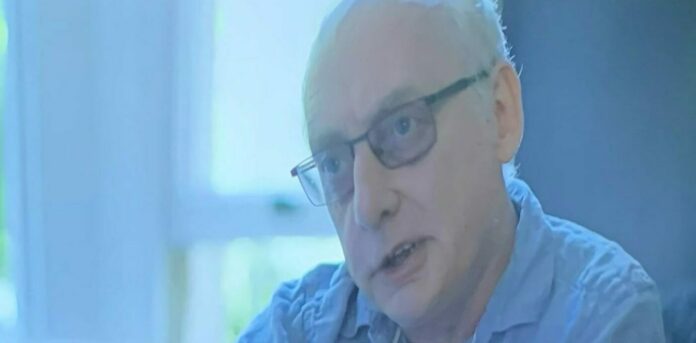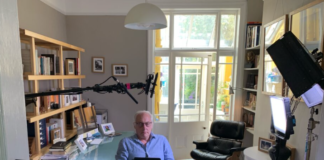- Torode to nowhere part one - 18th July 2025
- Cooking up trouble - 17th July 2025
- Numberless - 16th July 2025

Even as appalling violence unfolds in the Middle East, new figures show that while Israeli voters back the invasion of Gaza, the personal rating of the Prime Minister has plunged because of official attacks on the judiciary and ‘destabilisation’ of the media, so here our Editor Welshman Phil Parry looks at how people support an independent legal system, as well as a free media, to hold to account those in power.
Earlier he described how he was assisted in breaking into the South Wales Echo office car when he was a cub reporter, recalled his early career as a journalist, the importance of experience in the job, and made clear that the ‘calls’ to emergency services as well as court cases are central to any media operation.
 He has also explored how poorly paid most journalism is when trainee reporters had to live in squalid flats, the vital role of expenses, and about one of his most important stories on the now-scrapped 53 year-old BBC Wales TV Current Affairs series, Week In Week Out (WIWO), which won an award even after it was axed, long after his career really took off.
He has also explored how poorly paid most journalism is when trainee reporters had to live in squalid flats, the vital role of expenses, and about one of his most important stories on the now-scrapped 53 year-old BBC Wales TV Current Affairs series, Week In Week Out (WIWO), which won an award even after it was axed, long after his career really took off.
Phil has explained too how crucial it is actually to speak to people, the virtue of speed as well as accuracy, why knowledge of ‘history’ is vital, how certain material was removed from TV Current Affairs programmes when secret cameras had to be used, and some of those he has interviewed.
He has disclosed as well why investigative journalism is needed now more than ever although others have different opinions, how the pandemic played havoc with media schedules, and the importance of the hugely lower average age of some political leaders compared with when he started reporting.
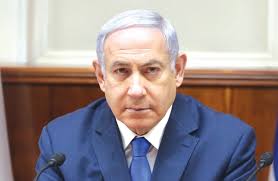
They go hand in hand, and people back that. You mess with the independence of judges, or a free media at your peril!
The awful massacre by Hamas of 1,400 people and the kidnapping by them of more than 220 innocent civilians, has NOT obscured in the minds of Israeli voters, their dislike of the Prime Minister Binyamin Netanyahu.
No one should be in any doubt as to the horror of what Hamas did.
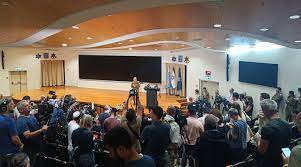
On October 23 the Israeli army screened 43 minutes of raw footage from the massacre for foreign journalists. Some was taken from the attackers’ body cameras, the rest from surveillance cameras and mobile phones. No recording was allowed at the screening, in a nondescript auditorium on an army base: this was a sadistic snuff film not for the public’s eyes.

In one harrowing clip a father rushes his two young sons, all of them clad in their underclothes, to a hiding place. A terrorist throws in a hand grenade after them. The father is killed. The bloodied boys—one appears to have lost an eye—are led back into their house at gunpoint, where their father’s killer asks them for water, calmly raids the fridge and starts drinking a cola. (An army spokesman was unable to say if the boys survived.)

Among many other awful atrocities, they kidnapped a grandmother and beat her.
The horrors went on.
A gunman tried to behead a Thai labourer who had been shot in the stomach; unable to find a knife, he hacks away at the man’s neck with a garden hoe.

Other images showed burned babies and children with their brains spilling from their heads. Several of the attackers proudly posed for photographs next to their victims.
But none of this has translated into support for Mr Netanyahu. Not only has he failed to keep them safe, but he was responsible for undermining the independence of the judiciary, and (as voters see it) destabilising a free and inquiring media.

While the polls show broad backing among Israelis for the ground offensive in Gaza, they also reveal that support for Mr Netanyahu has plummeted. Some 40 per cent of voters who supported his Likud party less than a year ago now say they would vote for someone else, and calls are growing for a national commission of enquiry to be held once the conflict has ended.
Reporters Without Borders has declared: “The Israeli media landscape has been destabilised following the rise to power of a government that threatens freedom of the press”.
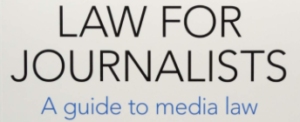

People have not forgotten how Mr Netanyahu tried to erode the freedom of judges, which (along with a free media), is vital to a functioning democracy.
Earlier this year large-scale protests erupted across Israel in response to his government’s push for a wide-ranging judicial overhaul.
The proposed overhaul package aimed to change the makeup of the Judicial Selection Committee, so that control over the appointment of judges could be effectively given to the Government, as well as prevent the Supreme Court of Israel from ruling on the validity of a Basic Law, and abolish the use of “unreasonableness” as grounds for review of administrative decisions. In March Mr Netanyahu even tried to fire his Defence Minister Yoav Gallant (probably a mistake in the light of what has now happened) after he publicly criticised those plans, and the growing distrust between the two since then, hampered Israel’s war planning.
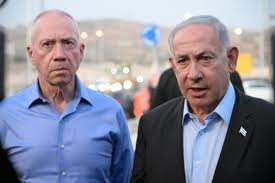
Ordinary people supported Mr Galant, and also didn’t like these ‘reforms’, so huge demonstrations followed. They knew perhaps better than most, that an independent judiciary is effectively in partnership with a free media in a democracy, and together they form the bedrock of the state.
Sadly, though, the authorities in Israel are not alone in attacking those concepts.
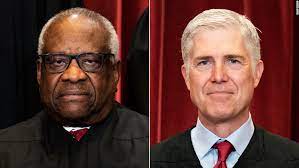
In America, for example, two US Supreme Court justices, Neil Gorsuch and Clarence Thomas, took aim at New York Times Co. v Sullivan (a landmark ruling from 1964 that shielded newspapers from southern efforts to stifle coverage of brutality against civil-rights protesters).
In their eyes, the “actual malice” defence (which requires public figures alleging libel to prove that the publisher printed a statement knowing it was false, or without caring whether it was true) was damaging.

Litigants, and potential litigants, there were then emboldened to turn to the law about media articles they objected to. This might sound very technical, but actually it was extremely important, and journalists were alarmed.
It effectively meant that a vital legal defence for journalists was weakened, when they may have wanted to publish factual information about important people who might not like these details being brought out into the public glare.


In Europe it is no better.
After Slovenia seceded from Yugoslavia in 1991, it gave Radio Television of Slovenia (RTV-SLO) a mandate to report independently, unlike the state propaganda that passed for news under Communism. But the Government there refused to pay RTV-SLO’s budget, and wanted to pass a new media law that would make it easier to control.
In Latvia a new public media law failed to include a set-aside tax, like the television licence fee that funds the BBC (which could now be cut after the Martin Bashir affair), and that left it vulnerable to political pressure. It was not clear, either, that the ‘supervisory board’ would be protected from political appointments.
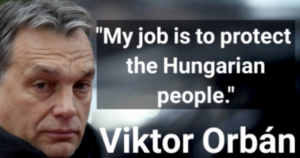
When Viktor Orban won power in Hungary in 2010 he introduced legal changes to transform the state media agency MTVA into a propaganda organ.
The group was then restructured into a shell company in a fashion that exempted it from the law governing public media, and during the European Parliament elections in 2019, editors at MTVA were recorded instructing reporters to favour Mr Orban’s Fidesz party.

Poland’s Law and Justice (PiS) party followed Mr Orban’s example when it won power in 2015, and used the law to turn TVP (the public television network), into a bullhorn for the party. The network championed campaigns against gay rights and demonised the opposition mayor of Gdansk. After he was assassinated by an extremist in 2019, a court told TVP to pay damages, but it did not comply.
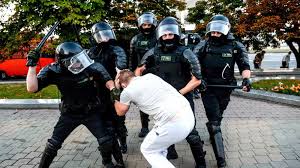
In Belarus the situation was also terrible.
At least 16 journalists there were put behind bars, and riot police were singling out reporters for arrests and beatings at protests as the media was intimidated.
In Russia the situation was particularly bad for journalists who were trying to report what was happening, as the ‘law’ was chopped and changed.

The autocratic president Vladimir Putin signed an act that would allow Russia to declare journalists and bloggers “foreign agents”, in a move that critics said would allow the Kremlin to target Government opponents. Under the vaguely worded law, Russians and foreigners who worked with the media or distributed their content and received money from abroad were to be declared foreign agents, potentially exposing journalists, their sources, or even those who shared material on social networks to foreign agent status.

All of this shows how necessary it is to have a free media, and subverting it is dangerous, while attacking an independent judiciary is a possible step towards it.
As Mr Netanyahu knows only too well…
Phil’s memories of his astonishing decades long award-winning career in journalism (which has included numerous legal threats), as he was gripped by the rare neurological disabling condition Hereditary Spastic Paraplegia (HSP), have been released in a major book ‘A GOOD STORY’. Order the book now!
Regrettably publication of another book, however, was refused, because it was to have included names.
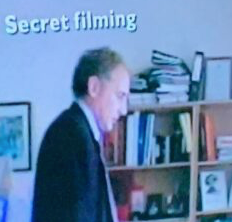
Tomorrow how new doubts about a high-profile Chinese policy have highlighted exclusive revelations by The Eye that a battery firm which pulled out of Wales was part-founded by an associate of a fraudster.







